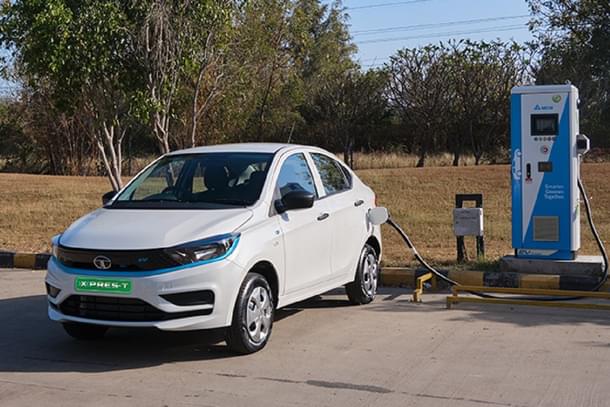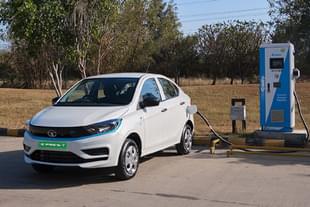News Brief
Explained: How The New Electric Vehicle Policy May Disrupt The EV Car Market Against Tata Motors
Bhuvan Krishna
Apr 02, 2024, 03:20 PM | Updated 03:20 PM IST
Save & read from anywhere!
Bookmark stories for easy access on any device or the Swarajya app.


The Indian government has introduced a new electric vehicle (EV) policy, aiming to attract global EV manufacturers like Tesla to establish manufacturing facilities in the country as per a report by The Economic Times.
The recently announced policy includes concessional tariffs and a significant reduction in customs duty as incentives.
Under the new policy, global EV makers committing to manufacturing in India will benefit from a reduced rate of 15 per cent customs duty for up to 8,000 EVs imported annually. The policy also allows the carryover of any unused annual import limits.
This move has sparked a debate on its potential impact on Indian players, especially Tata Motors, which currently dominates the Indian EV market.
However, many believe it will drive the localisation of premium vehicles, an area where Tata Motors is looking to expand.
Tata Motors currently holds over 70 per cent of India's EV market share, with electric versions of popular models like Tiago, Nexon, Tigor, and Punch. The company plans to electrify its premium models, including the Harrier.
Interestingly, Tata Motors had previously advised against lowering import duties on EVs, citing concerns about its impact on the domestic industry and the investment climate.
Meanwhile, the think tank GTRI has cautioned that the new policy could lead to a significant influx of Chinese auto firms into the Indian market. According to their report, Chinese firms, either independently or through joint ventures with Indian firms, could account for a large share of electric vehicles and other vehicles on Indian roads in the coming years.
While Tesla focuses on selling EVs in the US in the $40,000-70,000 price range, BYD offers a range of vehicles from affordable to luxury, including electric buses, surpassing Tesla in terms of volume.
On the other hand, Tata Motors' EVs are priced competitively, with models like the Tiago, Punch, and the upcoming Harrier EV expected to be priced below Rs 30 lakh.
Mahindra's XUV400, another popular EV, is available at Rs 16 lakh, indicating that Indian manufacturers are not overly concerned about competition from Tesla, which currently caters to a higher price segment.
While international companies excel in design and features, they struggle to match the competitive pricing offered by Chinese firms like BYD. This competitive pricing could be a key factor in the price-sensitive Indian market.
Additionally, Xiaomi has entered the EV market with its SU7 electric car in China, offering stiff competition to Indian EV players.
Priced at about Rs 25 lakh, the SU7 offers compelling features and could potentially replicate Xiaomi's smartphone success in the EV industry, though Xiaomi has not yet announced its plans for the Indian market.
Bhuvan Krishna is Staff Writer at Swarajya.





